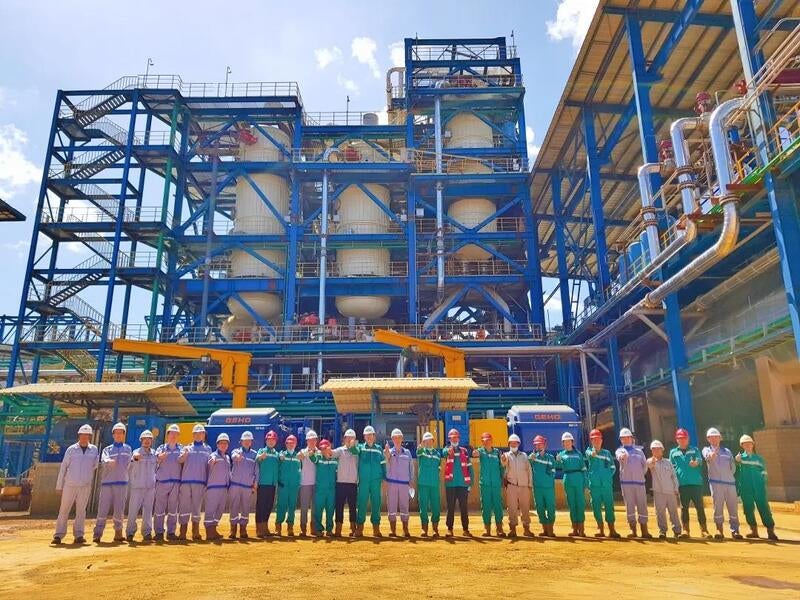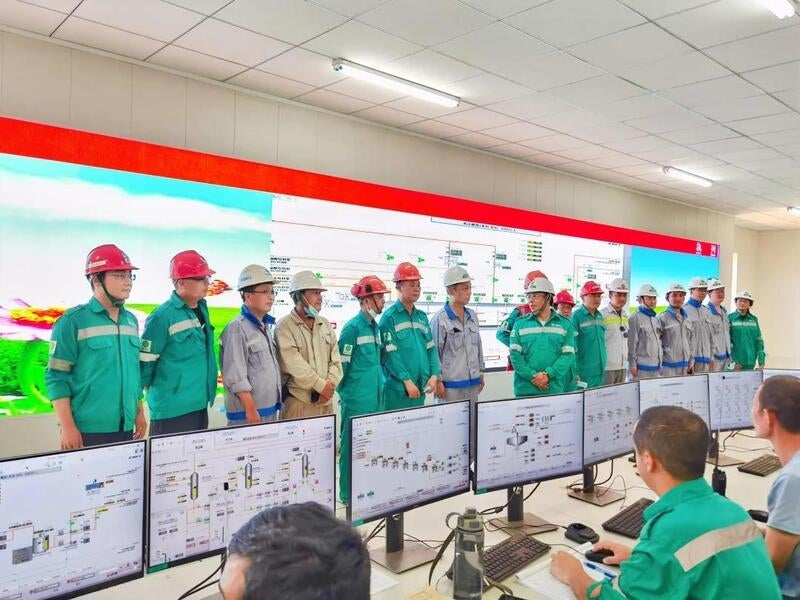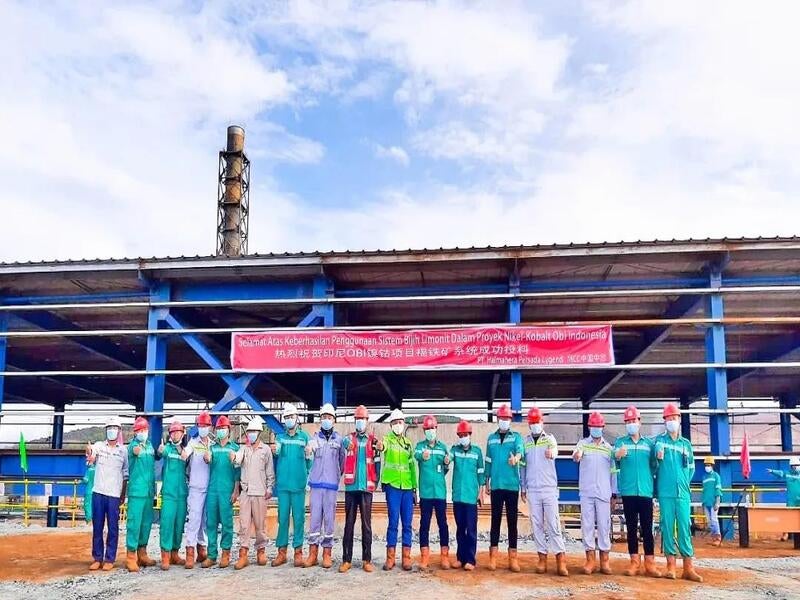The Obi high-pressure acid leach (HPAL) nickel-cobalt project is located in the North Maluku province on the Obi Islands of Indonesia. The nickel-cobalt processing and refining plant is being developed by Halmahera Persada Lygend, a joint venture between Indonesia’s Harita Group and China’s Ningbo Lygend.
Halmahera Persada Lygend received all key permits for the £822m ($1.bn) project by January 2019, while the construction works on the project were already started in October 2018.
The Obi HPAL nickel-cobalt plant commenced trial operations in April 2021, while the first batch of mixed hydroxide precipitate (MPH) is expected to be produced in the first half of 2021.
The HPAL project is designed to utilise hydrometallurgical high-pressure acid leaching technology for the production of mixed nickel-cobalt hydroxide precipitate (MHP), along with nickel sulphate and cobalt sulphate as the end products.
Location
The Obi HPAL nickel-cobalt project is located in the Kawasi village mining area in the Obi district, in the Maluku province of Indonesia. The project site lies on the Obi Islands in the South Halmahera regency.
Obi HPAL nickel-cobalt project development plan
The HPAL nickel-cobalt processing and refining facility is being developed in two phases. While in phase one, it is designed with an annual production capacity of 160,000t of nickel sulphate and 20,000t of cobalt sulphate, it is estimated to produce approximately 240,000t of nickel sulphate and 30,000t of cobalt sulphate products annually after the completion of the second phase.
Ore processing
The nickel-cobalt project will process laterite-nickel ore resources with nickel (Ni) content less than 1.6%, utilising the beneficiation and HPAL methods. The ore will first undergo beneficiation for the production of limonite and saprolite nickel ore slurry before feeding into the HPAL process.
The HPAL circuits will produce the battery-grade final products of nickel sulphate and cobalt sulphate.
Infrastructure facilities
The infrastructure and support facilities at the Obi HPAL nickel-cobalt project site include the construction of a 60MW coal-fired power plant, limestone raw material preparation workshop for preparation of limonite slurry, a sulphuric acid plant for the production of sulphuric acid and steam for smelting, the HPAL raw material workshop, and an air compressor station.
It also includes autoclave equipment, flash tank for high-pressure acid leaching, limestone mill, neutralisation and iron removal tank, heat and cold heat exchangers, boiler shells and economisers.
The project site also houses a 220t truck crane and a 260t crawler crane for lifting and installation operations.
Offtake agreement
China-based Shenzhen Green Eco-Manufacture (GEM) signed an offtake agreement with Halmahera Persada Lygend for the supply of MHP, nickel sulphate, and cobalt sulphate, along with other raw materials from the project in September 2020. Under the eight-year agreement, GEM will be supplied with a minimum of 74,400t and a maximum of 178, 560t of nickel a year. It will also receive the supply of a minimum of 9,296t and a maximum of 22,320t of cobalt by-products a year.
Contractors involved
China Enfi Engineering Corporation delivered a full-line process package, core equipment procurement management, supply and on-site services, as well as the DCS system configuration and on-site commissioning services.
China National Chemical Engineering Sixth Construction Company was contracted for the construction of smelting, pulp treatment, plant telecommunication system, and plant control system in January 2019.
Shanghai Baoye Metallurgical Engineering Company won the bid for the first section of the Obi nickel-cobalt project in 2019.
China Metallurgical International signed a supplementary agreement for the construction contract for the fifth section in April 2020.
Chongqing Saidi Engineering Consulting Company was contracted for the supervision services, while Aden Group was contracted for the camp management services and solutions at the Obi HPAL project site.
Jiangsu Ruitong Information Industry Company was contracted for the manufacturing and supply of stainless-steel colour coated roof in December 2020.
Other projects on the Obi Island
In addition to the HPAL project, the Harita Group and Ningbo Lygend joint venture is also developing a kiln–electric arc furnace (RKEF) nickel project, a supporting power plant project involving four 150MW units, a nickel sulphate project, and a dock (wharf) project.





